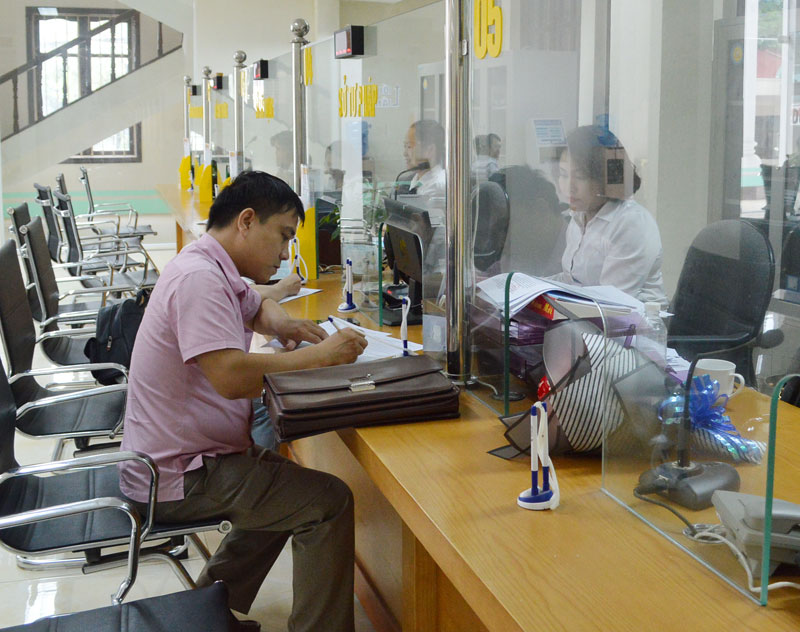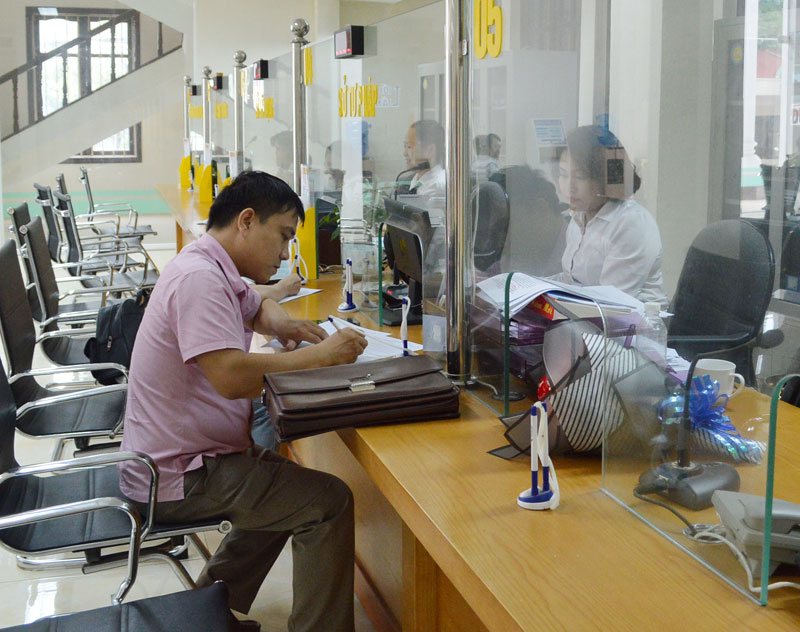
(HBO) - In early months of 2019, the monitoring of administrative procedures in Hoa Binh was carried out synchronously, with the provincial People's Committee issuing plans and documents guiding the implementation of administrative violation control in the province.
In the first quarter of 2019, the
committee’s relevant agencies advised the Chairman to issue 22 decisions
announcing the list of the 349 administrative procedures under the jurisdiction
of the three levels of local authorities. Notably, a new regulation amended and
supplemented 78 procedures, while removing 150 others.
Based on these decisions, local departments,
agencies, district- and commune-level People's Committees have fully posted the
content of each administrative procedure on their official portals and made
public the receipt of administrative documents and return of results at public
administration centers at provincial, district and commune levels. The office
of the provincial People's Committee has updated its data on administrative
procedures and publicise the information on the national database.
 People engage in
administrative procedures in the construction field at the provincial
administrative service center.
People engage in
administrative procedures in the construction field at the provincial
administrative service center.
Implementing the single-window
mechanism in settling administrative procedures, the People's Committee issued
Decision No. 3010/QD-UBND on the announcement of the 1,980 administrative
procedures to be accepted and not at provincial administrative service centers,
as well as district- and commune-level divisions offering administrative services.
Local authorities and
competent agencies are focusing on promoting the processing of files requested
for administrative approvals. In the first quarter, the entire province
received 108,120 files, of which 105,163 were processed and of this, 105,121
were processed on time. The number of files processed via public postal
services amounted to 928, mainly in the fields of transportation, justice, planning
and investment, and industry and trade, among others./.
The emulation movement "Hoa Binh joining hands to build new-style rural areas” has been widely spreading, becoming a driving force that motivates the localities to renew rural landscapes and improve the material and spiritual lives of the residents. In this movement, the people play a central role-both as the main implementers and direct beneficiaries of its outcomes.
In response to the global digital revolution, Hoa Binh Newspaper is transforming itself into a modern and multi-platform media hub, blending cutting-edge technology with a restructured newsroom and a new generation of tech-savvy journalists.
Hoa Binh province’s Association of the Elderly recently held a conference to review the project on expanding the inter-generation self-help club model until 2025.
In a move to implement Resolution No. 57-NQ/TW, issued on December 22, 2024 by the Politburo, which targets breakthroughs in science-technology development, innovation, and digital transformation, the Hoa Binh provincial Department of Health has issued a plan to roll out the "Digital Literacy for All” campaign within the local health sector.
An Nghia Commune (Lạc Sơn District) is one of the communes that achieved the tha standard of the national new rural area in 2018. Entering a new development phase, the commune is now trying to meet the criteria for the advanced new rural development. With the strong political will and the public consensus, the commune is gradually overcoming the challenges to reach this goal, aiming for the sustainable development.



 People engage in
administrative procedures in the construction field at the provincial
administrative service center.
People engage in
administrative procedures in the construction field at the provincial
administrative service center.